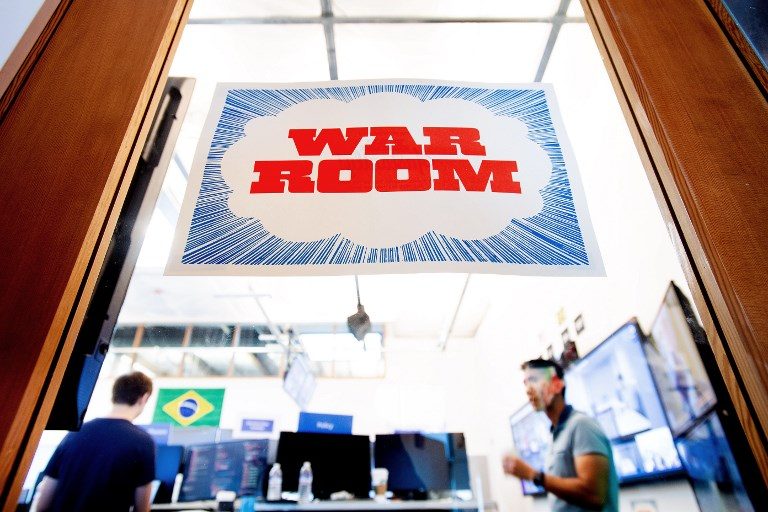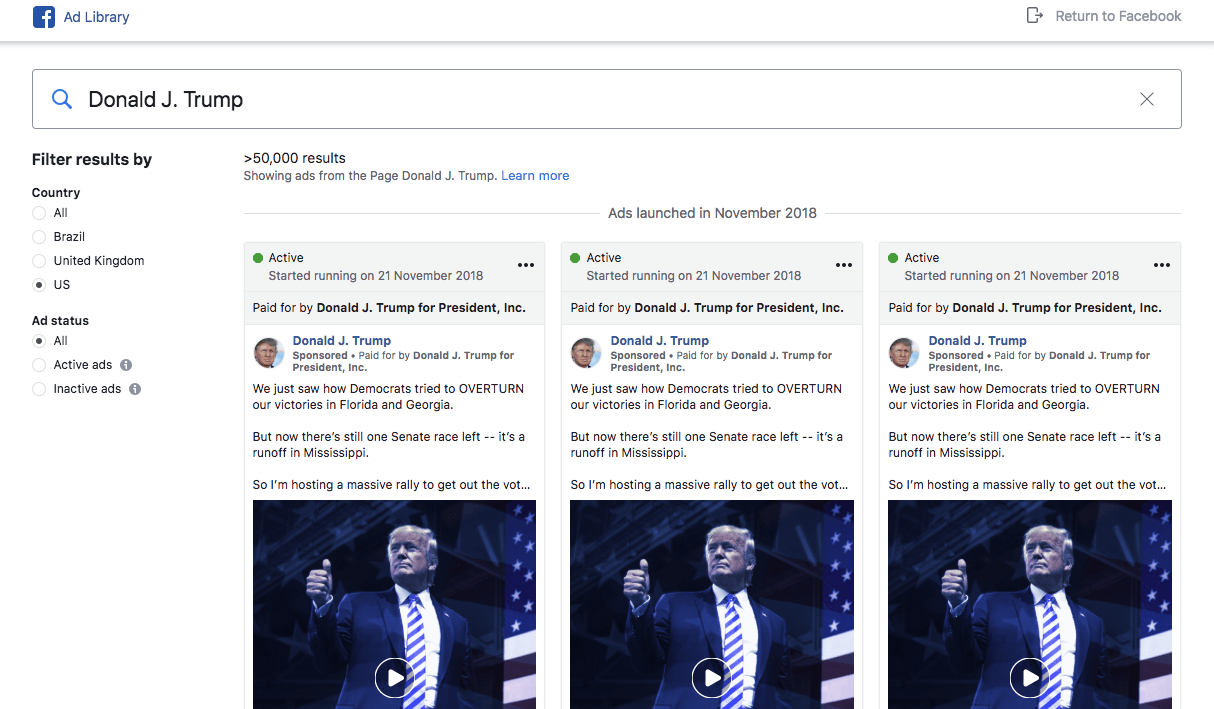SUMMARY
This is AI generated summarization, which may have errors. For context, always refer to the full article.

MANILA, Philippines – Facebook CEO Mark Zuckerberg in 2018 promised to make Facebook safer from election interference around the world after the social media platform was infiltrated by Russian disinformation campaigns that meddled in the 2016 US presidential elections.
Last September, he published a blog post where he outlined changes that were implemented to fight so-called “bad actors” on Facebook and protect users from the harm they may inflict.
“Today, Facebook is better prepared for these kinds of attacks,” Zuckerberg added.
Are they really?
We list some of the platform’s recent anti-election meddling efforts below. And as the Philippine elections loom, we’ll be keeping a close eye on how the platform is seeking to protect election integrity via their platform.
The war room
In late 2018, prior to the US midterm elections, and elections in Brazil and other countries, Facebook set up what they called the “War Room,” a conference room sized 25 feet by 35 feet housed in the company’s Menlo Park headquarters, reported The New York Times. 300 people across the company worked on the initiative, with a dedicated team of 20 that worked on disinformation, false news, fake accounts and other forms of election meddling.
The “room” appears to be more than ad hoc, with Facebook denying reports that it had been torn down after the elections. No confirmation yet though on whether such a base of operations will be reactivated for the 2019 Philippine elections.
Postcards
Back in February of last year, Facebook sent out postcards to physical addresses in the US to verify the identities of the people buying ads for candidates running for federal offices, including the House of Representatives and the Senate.
The postcards reportedly contained codes that the recipient must enter online to confirm their location. After a buyer is verified, all political ads they put up will now disclose who paid for them.
The program, however, was only implemented in the US.
Artificial intelligence
Zuckerberg at Facebook’s annual F8 conference last April announced that the social media platform will use artificial intelligence (AI) to help identify bad and questionable content on the site, including those that might be related to election meddling.
Notable examples of bad content include graphic violence, nudity, hate speech, spam, and fake accounts.
Facebook also employs an AI to help third-party reviewers flag articles with false information, given the grand scale of content that gets uploaded and shared on the platform daily.
Partnership with law enforcement
The social media platform reached out to the Federal Bureau of Investigation (FBI), the Department of Homeland Security, and state election boards ahead of the US midterm election last year.
According to a report from Bloomberg, these partnerships proved crucial to Facebook’s pursuit to suppress the spread of fake news on the platform as it helps identify and deal with problems faster.
Local fact-checkers
While Facebook uses AI to help weed out fake news, it cannot completely replace real people. For this reason, the social media platform established a network of third-party fact-checkers in each country, who may have better insight on local news.
Last April, Rappler and Vera Files were selected to partner with Facebook in its fact-checking program.
Ban of fake accounts
Of course, there’s no better way to silence those who intend to spread false information than by banning them from the platform.
Zuckerberg in a post last December said that millions of fake accounts get banned from Facebook everyday.
Just this month, Twinmark Media Enterprises, the company behind Trending News Portal, was banned by Facebook for a number of reasons that include inauthentic behavior and use of fake accounts.
Advertising transparency
Since last year, Facebook has allowed users in certain countries to access information about buyers of political ads.

Users also have access to an advertiser’s Ad Library Report, an online library that contains all ads related to politics that they posted, its corresponding metrics, and its budget.
VentureBeat reports that India, who will hold its general elections this May, is the latest to benefit from this new program. It was previously only available in Brazil, UK, and US. In November, Facebook’s statement on whether the Ad Library Report would be rolled out in the Philippines was that “there is no information yet on the roll-out.” – Rappler.com
Add a comment
How does this make you feel?
There are no comments yet. Add your comment to start the conversation.